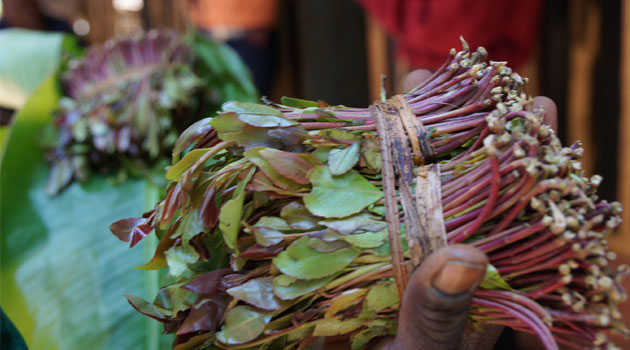By Mohamed Daghar
NAIROBI, Kenya, Apr 30- Regulating the khat trade would disrupt the illegal drug economy and the regional criminal market.
In March 2020 Somalia suspended flights to its capital due to the COVID-19 outbreak. However, at least two flights disguised as carrying humanitarian aid and medical supplies for COVID-19 were intercepted smuggling tons of khat.
These flights avoided the main Mogadishu airport and used the smaller airstrips of Buhodle and Jowhar where surveillance is minimal.
During this period, old smuggling sea routes from Kenya to Somalia also opened up. Khat was smuggled alongside other illicit goods, such as explosives used by terrorists, and licit goods, such as fish, using the Lamu (Kenya) and Ras Kamboni (Somalia) sea route.
An anti-terrorism expert who spoke on condition of anonymity told ENACT that it was possible that the actors involved in human trafficking were the same ones that smuggled khat using this route. From US$10/kg of khat, smugglers were benefiting 10 times more due to the price hike on the black market.
However, at the end of January 2021, with the increasing smuggling of the stimulant, Somalia again permitted its importation from Kenya with new licensing and duties regulations.
At this early stage of implementation, it is unclear if these regulations will have an impact on its smuggling.
Internationally, khat is classified under new psychoactive substances (NPS).
These are substances that are not controlled by any of the three international drug conventions of 1961, 1971 and 1988.
Thus the legal status of NPS varies and is left to the discretion of respective countries. This extends to regulations for growing, consuming and trading the drug.
Khat has been grown for centuries, mainly in Ethiopia and Kenya, and is widely used (and chewed) across East and the Horn of Africa regions. The World Health Organization (WHO) says its most harmful effects include those on the gastro-intestinal and nervous systems.
WHO further reports that the withdrawal symptoms after prolonged use are mild and habitual users don’t show serious problems when stopping use. However, studies looking at the long-term cognitive effects of chronic khat use are lacking.
Across East and the Horn of Africa, differing legislative responses to khat (a plant-based stimulant drug) are driving an illegal smuggling market in the region. Harmonising khat-related legislation and control measures across the region could have numerous benefits.
Khat is legal in Kenya, Ethiopia, Uganda and Djibouti. It is a source of livelihoods and has become a major cash crop, earning countries tidy sums of revenue. Kenya earns a minimum of US$400 000 a day in export value from trading it as a cash crop, with Somalia as a key trading partner.
However, Tanzania, Eritrea and Somalia have obscure legislation and control measures regarding the stimulant.
In particular, Somalia measures are erratic. At times it allows consumption but periodically bans trading, reverting to unclear regulations, ongoing diplomatic tiffs and more recently COVID-19. The pricing and access to khat fluctuates in tandem with these decisions.
Tanzania also has a sizeable population that consumes khat. The country doesn’t ban its consumption but uses legal instruments and control measures to criminalise the growing and trading of the stimulant.
A Kenyan wholesale trader told ENACT that despite the obscure controls and because it was best consumed fresh, khat is smuggled from Kenya to Tanzania daily, hidden in trucks carrying other agricultural goods.
It is smuggled through the border crossings of Namanga, Isebania and Lunga Lunga. The trader says these border areas are less regulated and not all trucks are scanned, especially those carrying agricultural products.
In Tanzania, the stimulant is transported and trafficked from one point to another using increasingly innovative methods, such as the mail system and even ambulances.
In contrast, khat is illegal in Rwanda, where it is classified as a narcotic drug and listed among other banned psychotropic substances. Anyone convicted for possession of khat faces a penalty of between seven years and life in prison and a RWF30 million (U$D30 000) fine.
Current measures to prohibit khat and impose punitive penalties for its growing, trade and consumption contribute to the regional and organised khat smuggling market. This is controlled by criminals who are also involved in moving other illicit goods, as seen in the Somalia case.
Regulating the trade would disrupt the criminal market and challenge the illegal drug economy – that is, trafficking khat alongside other illicit goods. The cost of the drug would also be regulated, thus limiting the current pattern of hiking prices and of course increasing their profits.
Legally growing and trading khat would enable countries to tap into the revenues generated from the trade, as is the case with Kenya and Ethiopia.
There is increasing advocacy – including at the level of the United Nations and WHO – to review punitive regulations that criminalise the personal use of drugs.
The African Union Plan of Action on Drug Control and Crime Prevention, 2019-2023, has also called for NPS legislation to be reviewed in order to adapt it to contemporary challenges.
These include the linkages between NPS and drug trafficking, organised crime and violence driven by illicit arms dealers, corrupt officials and money launderers.
Alternative models of drug policy and response – explored in a recent ENACT study on rethinking drug prohibition in South Africa – may be useful to consider for the khat market. Apart from legal regulation, these include depenalisation, decriminalisation and harm reduction.
The two regional economic communities of the East African Community and the Intergovernmental Authority on Development may be useful platforms to promote such alternatives and for harmonising policies for responding to the use of khat.
Mohamed Daghar, ENACT Regional organised crime observatory coordinator – East and Horn of Africa, ISS
The Article was first published by ENACT/ https://enactafrica.org/enact-observer/
The Author, Mohamed Daghar, is ENACT Regional organised crime observatory coordinator – East and Horn of Africa, ISS.
Want to send us a story? Contact Shahidi News Tel: +254115512797 (Mobile & WhatsApp)


